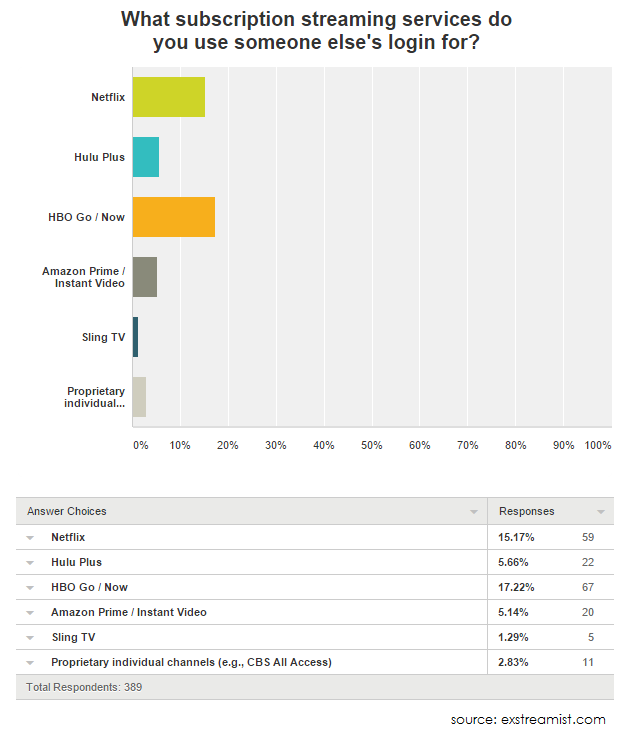Password Sharing? Wall Street Analysts Call It Password Stealing
Admit it, you’re using someone’s password for at least one service right now. HBO? Netflix? Hulu? It’s ok, we won’t tell. There’s a large percentage of people who share passwords, especially in the younger generations.
But what some might call sharing, others call stealing. Three Wall Street analysts in a memo to clients about the modern streaming TV industry made some comments that certainly will stir some commentary from the cord cutter community (h/t Business Insider):
“The millennials are a generation that grew up (and will likely grow old) ‘sharing’ (read stealing) passwords for access to content if it continues to be ignored. We believe it is the most significant cause of the declining pay TV subscriber base.” – Jefferies analysts Mike McCormack, Scott Goldman, and Tudor Mustata
Their suggestion to recitfy the problem? Limited the number of devices that these services can stream on, so for instance if someone’s HBO account is streaming on more than one device, their plan would eliminate multiple logins.
However, we’ve always heard that most of the streaming services are far less concerned about password sharing than perhaps their big brother cable companies, seeing as a large enough percentage of these folks eventually turn into paying customers themselves. It certainly passes a sniff test that younger consumers who are borrowing their friends’ and family’s passwords would eventually grow out of the borrowing phase and pay for their own accounts.
Legally speaking, it’s an interesting question, is it against the law to share your Netflix password? Not really. Netflix probably has some language in the ToS about who is allowed to login to a specific account, but that’s arguably one of the most unenforced rules on the face of the planet. They do, after all, offer tiers giving more access to accounts in two and four-login packages.
Certainly limiting the number of devices that an account can access is a great way to limit password sharing, but if it’s one of the best marketing tactics of spreading the word of how robust these services are? Then the short term thinking of trying to make a quick buck as opposed to growing a lifetime customer base seems shortsighted.

